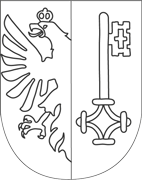Discover our articles on taxes in Switzerland
Thanks to our new online platform, you can now entrust us with your tax return!

Some info about taxes?
Swiss taxes: income, wealth, and withholding taxes by canton
Do you have questions about your taxes? Whether you’re a resident of Vaud, Geneva, Valais, or a cross-border worker, whether your income is subject to withholding tax or you’re taxed in the regular way, you’ve come to the right place (the only place)!
At FBKConseils, we’ve created a series of articles to answer all the tax-related questions our clients may have.
Whether you’re looking for information specific to your canton or explanations on broader tax topics, you’ll find detailed and tailored answers to your situation here.
Our articles are organized by canton and by theme, making it easy and efficient for you to navigate through all the tax intricacies.
And if you’re new to us, don’t hesitate to ask any questions. We also offer a free initial consultation to help you gain clarity and optimize your tax situation.

Taxes on investments
In this first section, we discuss the taxation of investments. More and more of our clients are realizing that investing is an excellent way to grow their savings. However, it is essential to understand that, like “almost” everything else, this comes with tax considerations – except in a few special cases in Switzerland.
The goal of these articles is to guide you based on the type of investment you’re considering.
Whether you’re interested in real estate, stocks, bonds, or any other investment, we will explain the relevant tax aspects to help you optimize your investment strategy while adhering to Swiss tax rules.
Taxes in the Canton of Vaud
At FBKConseils, our heart remains in Vaud, and that’s where it all started. We developed our first articles in this region, and we continue to update them regularly to meet the informational needs of our clients.
This section dedicated to Vaud taxes provides you with all the essential information to understand how your wealth will be taxed, how to calculate your income taxes, as well as the different possible tax deductions from year to year. We also address specific questions about tax optimizations that can benefit each Vaud taxpayer.
Taxation in the canton of Vaud
- Understanding the calculation of the taxable income in Switzerland
- Understanding wealth tax in the canton of Vaud
- Understanding your income taxes in the canton of Vaud
- The main 15 tax deductions in the canton of Vaud for 2024
- Tax and foreign real estate
- How will marriage affect your taxes in the canton of Vaud?
- How can I maximise my tax savings in the canton of Vaud?
Taxation in the canton of Vaud
- Understanding the calculation of the taxable income in Switzerland
- Understanding wealth tax in the canton of Vaud
- Understanding your income taxes in the canton of Vaud
- The main 15 tax deductions in the canton of Vaud for 2024
- Tax and foreign real estate
- How can I maximise my tax savings in the canton of Vaud?
Taxation in Geneva
Do you live in Vully? No? Then, in Versoix perhaps?
In any case, you will have to submit to the particularities of the tax laws in force in your Geneva commune! Each commune has its own… and must obey its canton.
The canton of Geneva, like all the others, wanted to make its own unique recipe and has constructed its own method of calculation. It is composed of a cascade of increasingly crazy steps, which of course (otherwise it’s not funny enough), change according to your financial and family situation!
And all this for what?
In my opinion, to keep you away from fiscal wisdom.
Wisdom means savings! Basic… (or simple I never know)
Let’s not joke, because taxes, let’s be honest, suck.
Apart from the slightly painful calculation procedure, depending on your family situation (do you have children? are you married? etc.), the canton of Geneva can still be quite generous with authorised deductions, and allow you to ease your tax burden.
For example, Geneva allows you to have more than CHF 80,000 in assets per person without completely free of taxes. This amount increases according to the number of people living in the household.
On the other hand, for the wealthiest taxpayers who have chosen the wrong commune of residence, watch out! This canton can simply be a money pit.
Taxes in the canton of Valais
Valais has been experiencing a growing population for many years. The reasons for this attraction can be varied: landscapes, cost of living, but also, in some specific cases, its taxation.
If it’s the taxes in the canton of Valais that draw you in, we invite you to explore our detailed articles on taxes in this region. These resources will help you better understand how cantonal and municipal taxes work, as well as the tax deductions authorized by the Valais authorities.
In addition to providing practical information on income taxation, we also cover the taxation of your wealth, a key topic for many taxpayers in Valais. With our articles, you will be able to navigate the Valais tax system more confidently and optimize your tax declaration.
Learn more about the impacts of marriage, the birth of a child, or a move on your tax declaration.
Withholding taxes in Switzerland & Subsequent Ordinary Taxation
You’ve arrived in Switzerland to work as an employee or self-employed, and you’re unsure about how your income and wealth will be taxed? Whether you reside in Switzerland or work as a cross-border commuter, the goal of this section is to provide you with all the answers to your tax-related questions.
Will your various sources of income be subject to withholding tax? Do you need to request the status of a quasi-resident and opt for subsequent ordinary taxation (TOU)? How should you declare a withdrawal from your 2nd or 3rd pillar? Are there authorized deductions without having to file an ordinary tax return (3rd pillar, LPP buyback, transportation)?
If you’ve decided to work in Switzerland, there must be good reasons. But why not make your situation even better by minimizing your taxes as much as possible?
Direct federal tax and cantonal specificities
After the municipalities and the cantons, we can imagine now it’s the Confederation’s turn! Yes, the bad news is that this is the third and last layer of taxes in Switzerland. We could have done without it, but this is the 3-in-1 effect of the tax administration. It too is entitled to its share.
But the good news is that it’s the smallest of the three, the easiest to calculate and, above all, the same for all of Switzerland! Do you live in Zurich? (Be brave with the traffic!) Do you live in the bottom of the Val d’Anniviers? (How’s the snow?). We don’t care this time! Only your income and your family situation are decisive.
So, would you like to know how the direct federal tax is calculated? Let’s have a look!
Direct federal tax and cantonal specificities
Direct federal tax and cantonal specificities
Tax returns and instalments (acomptes)
In this last section, you’ll find the 5 steps to completing your tax return, starting with the change to tax at source for those concerned. And for those who are not taxed at source, you’ll also find everything you need to know about paying tax by instalments. What are instalments? Well, it’s a sort of advance on the tax you have to pay each month, and at the end of the year, depending on your tax decision, a review will be carried out and a rebalancing made if necessary. The aim is that the sum of your advance payments over the year should correspond to the amount of your tax assessment.
Tax returns and instalments (acomptes)
Tax returns and instalments (acomptes)




